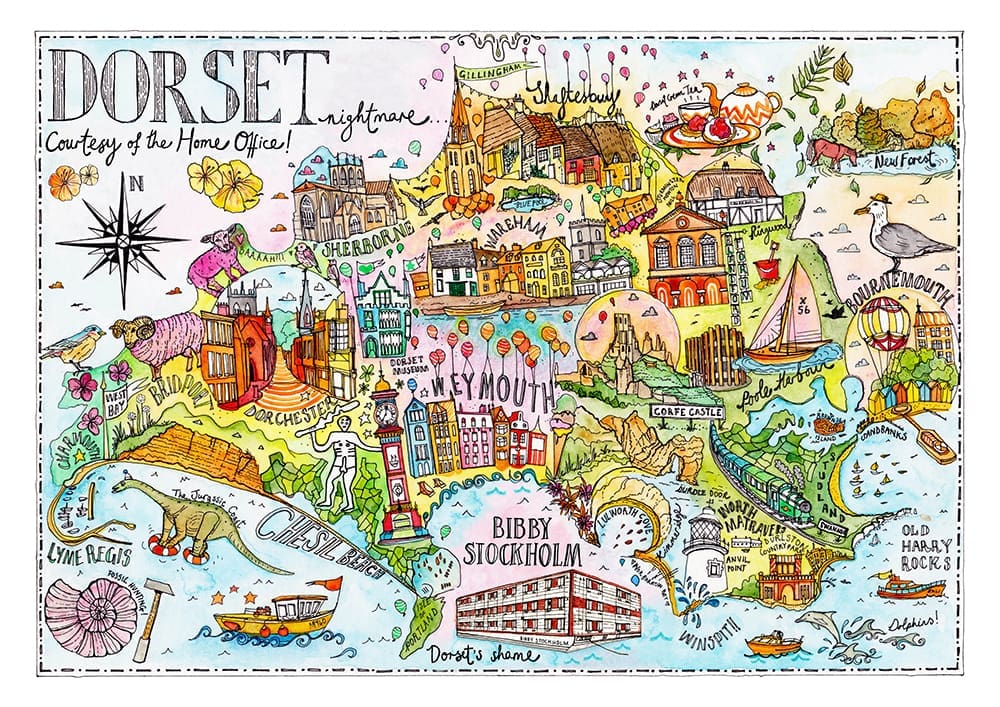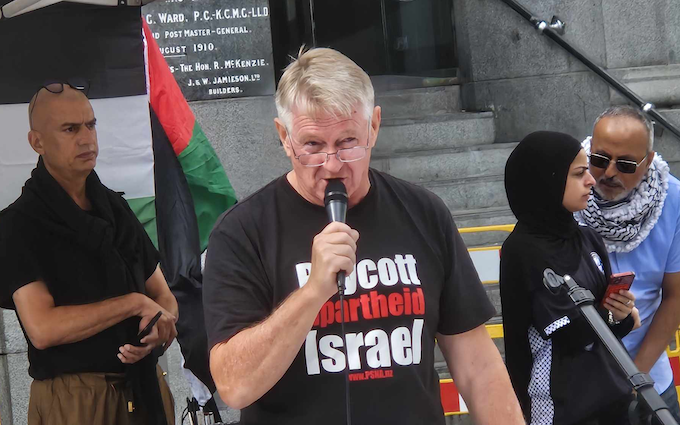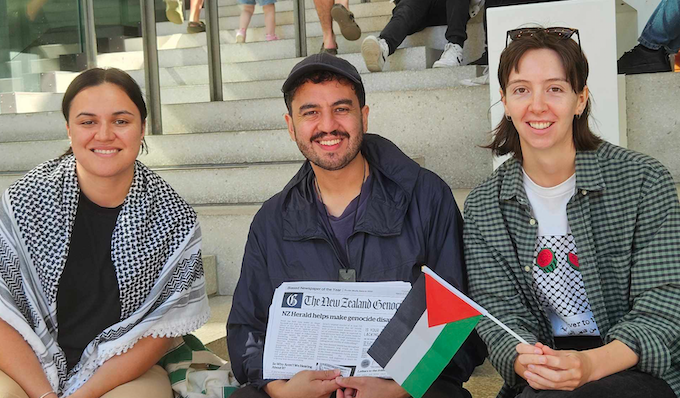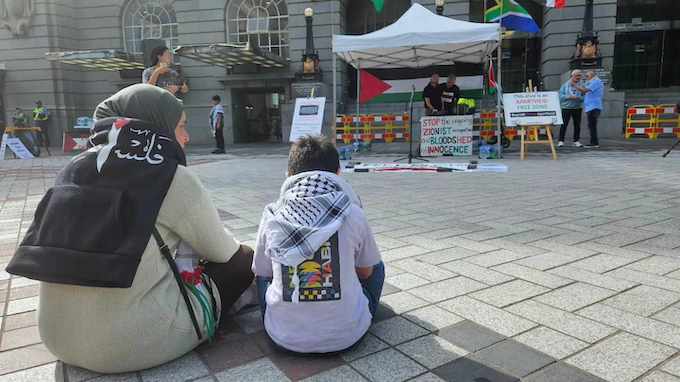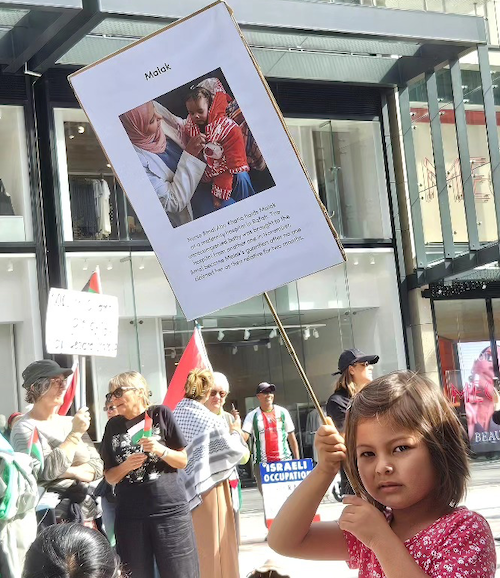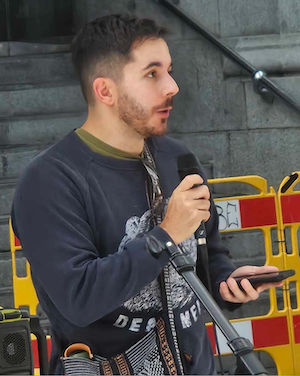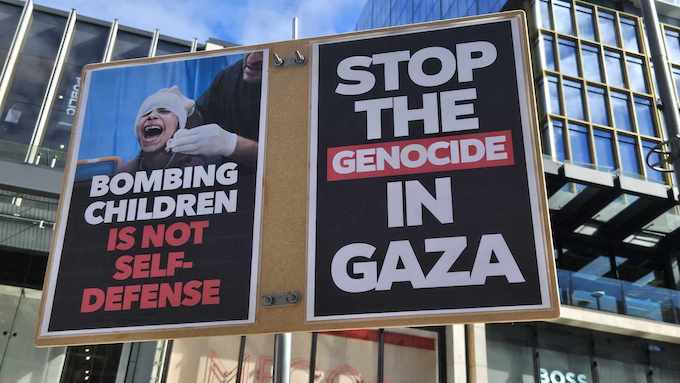The EU has ramped up its assault on refugee rights with its latest sweep of borderisation policies. On Tuesday 14 May, the bloc gave the final greenlight for a broad overhaul of its migration and asylum policies. However, the new EU ‘Migration Pact’ is simply another extension of its racist “fortress Europe” project. Crucially, its colonial undertones were unmistakable amidst platitudes to “help people fleeing persecution”.
EU Migration Pact
Across a suite of ten legislative acts, the EU has reformed its framework for asylum and migration. A majority of EU countries backed these, ensuring its passage despite opposition from Hungary and Poland. The overhaul comes into effect from 2026.
It establishes new border centres that will detain migrants while their asylum requests are vetted. Notably, the new policies will effectively accelerate deportations. Partly, it will do so through new border procedures that categorise asylum seekers. Border officials will use this new system to make quick assessments on applications.
European politician clamoured to hail the new policies. In one breath German interior minister Nancy Faeser said the reform will help people fleeing persecution, while in the other she said that it will make:
clear that those who do not need this protection cannot come to Germany or must leave Germany much more quickly
Unsurprisingly then, migrant and human rights organisations have consistently slammed the EU’s new slapdash approach to asylum applications and migration in general.
Amnesty EU called the new EU Migration Pact out on X:
The #EUMigrationPact will imply:
More people detained at #EU borders
Low quality procedures for asylum seekers
Emergency measures that restrict asylum
Limited support for border states
Shifting responsibilities to countries outside Europe
— Amnesty EU (@AmnestyEU) May 14, 2024
In other words, the new policies will sure up Europe’s racist borders. Meanwhile, more borderisation will put migrant lives at risk. As Amnesty previously highlighted in April:
For people escaping conflict, persecution, or economic insecurity, these reforms will mean less protection and a greater risk of facing human rights violations across Europe – including illegal and violent pushbacks, arbitrary detention, and discriminatory policing.
“Final nail in the coffin for human rights”
The Europe-wide umbrella organisation the Platform for Undocumented Migrants (PICUM) also criticised the EU’s move:
Final nail in the coffin for human rights at the EU's borders and beyond.#MigrationPact #migrationEU https://t.co/A3NJob1Kj3
— Platform for Undocumented Migrants (PICUM) (@picum_ngo) May 14, 2024
PICUM has previously articulated the multitude of ways the new EU Migration Pact will endanger migrant rights. Alongside pushing up deportations, the policies will exarcerbate racial profiling, limit access to legal representation, and remove vital safeguards.
The UK’s Migrant Rights Network – a member of PICUM – has warned this will:
expand the digital surveillance at Europe’s borders and further embed the mass criminalisation of migrants.
Specifically, it explained that in practice, this will mean:
the use of intrusive technology including surveillance and drones, in addition to the mass collection of people’s data which will be exchanged between police forces across the EU. Notably, this includes changes in the Eurodac Regulation. Eurodac is an EU database that stores the fingerprints of “international protection applicants” and migrants who have arrived irregularly.
This will mandate the systematic collection of migrants’ biometric data including facial images which will be retained in massive databases for up to 10 years. This data can be exchanged at every step of the migration process and made accessible to police forces across the European Union for tracking and identity checks purposes.
This means biometric identification systems will also be used to track people’s movements.
Colonial borders
In parallel with the sweeping reforms, the EU is stepping up its colonial ideology. Specifically, it has been negotiating deals with countries of transit and origin aimed at curbing the number of arrivals. Of course, this entails outsourcing the EU’s borders.
In recent months, it has inked agreements with Tunisia, Mauritania and Egypt.
Meanwhile, Italy has also struck its own accord with Albania. This will allow it to send migrants rescued in Italian waters to the country while their asylum requests are processed.
Furthermore, a group of countries spearheaded by Denmark and the Czech Republic are laying the groundwork for a similar approach. They have been coordinating a letter to the European Commission pushing for the bloc to transfer migrants picked up at sea to countries outside the EU.
However, Migration Policy Institute Europe Camille Le Coz said that there were “many questions” about how any such initiatives could work.
Under EU law, immigrants can only be sent to a country outside the bloc where they could have applied for asylum, provided they have a sufficient link with that country.
That rules out – for now – any programmes such as the UK’s abhorrent Rwanda scheme. Therefore, Le Coz said that it still needs “to be clarified” how proposals for any EU outsourcing deals would work.
EU Migration Pact: racist apparatus
Unsurprisingly then, entrenching its hard borders is EU’s answer to people seeking safety and community in Europe. Specifically, the EU originally launched work to reform its migration legislation off the back of the so-called 2015 “refugee crisis”.
Now, this has culminated in a slate of racist legislation that will put migrants at greater risk of harm. Of course, outsourcing borders and criminalising migrants is entirely on brand with the colonial “fortress Europe” rhetoric.
Invariably, this has become the intrinsic racist apparatus of colonial nations dodging responsibility for driving violence and displacement across the globe in pursuit of continued capitalist plunder. To the politicians in the halls of power, migrant lives continue to be expendable.
Additional reporting via Agence France-Presse
Feature image via Youtube – Channel 4 News
This post was originally published on Canary.



 (@AlasdairMack66)
(@AlasdairMack66) 